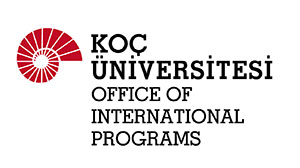Internship/Erasmus+ Traineeship
Guidelines and Information Concerning Incoming
Erasmus Interns at Koç University (KU)
Information below tries to explain the basic rules that apply for incoming Erasmus interns, and clarify who is responsible for the different stages of managing interns. The aim is to avoid problems for incoming interns, and make it easier for departments who wish to accept interns.
Definition of an Erasmus intern:
Erasmus interns are higher education students within the Erasmus+ Program Countries, who spend 2–12 months of their study program (or shortly after a program of study) as an intern at a company, organization or institution in another E+ Program country.
Erasmus interns are not Erasmus students. There is no exchange agreement between KU and the intern’s home university as a basis for this mobility. Koç University can be equated with a company in this regard. However, an agreement must always be drawn up (see point 2 below). The intern will receive a scholarship through their home university during their internship.
Procedure for accepting an Erasmus intern:
1) Erasmus intern candidate contacts Incoming Advisors within the Exchange Programs and Partnerships division of the Office of International Programs (incoming@ku.edu.tr) with her/his internship proposal/request to be forwarded to the relevant department. The relevant department, or research group the request has been forwarded to, is responsible for responding to the request in a coordination with the Office of International Programs (OIP).
Financial and strategic aspects for the receiving department to consider:
a) Erasmus interns will not generate any financial reimbursements for the department. The intern will, however, receive an Erasmus scholarship to partly cover the costs of travel and accommodation. Erasmus scholarships are managed by the intern’s home university.
b) The benefits from having an intern must be weighed against the resources that will be spent on them rather than on training admitted students at the department.
2) Following approval by the head of department, the teaching staff/researcher or administrative staff agrees to supervise the Erasmus intern during a period of 2–12 months, in which case
a) a so-called “Learning Agreement for Traineeships” is to be drawn up between the intern, the intern’s home university, and the supervisor at the Faculty or the Department , in accordance with the EU Commission’s guidelines. The Erasmus+ Institutional Coordinator (Dr. Bülent Kılıç) in charge will process and sign the Learning Agreement for Traineeships after approval from their head of department.
More information is available here (including the annex): ec.europa.eu/education/opportunities/higher-education/doc/learningtraineeships_en.pdf
b) The registration of Erasmus interns is to be performed in KUAPP (https://kuapp.ku.edu.tr). In connection with the registration, a so-called P number (a type of temporary personal identity number) is created for the intern by the Office of International Programs at Koc University.
3) Erasmus interns are not permitted to take courses at Koç University during their internship.
a) Erasmus interns are just that – interns – and are therefore not permitted to take courses or acquire academic qualifications at Koç University during their internship.
b) After completing the internship, the intern must not be issued any certificate indicating that the internship corresponds to a certain number of credits. Any requests for being awarded credits for the internship at the home university must be established before the start of the internship, and is entirely the responsibility of the home university. The supervisor at Koç University is to comply with and satisfy the conditions for supervision, in accordance with the EU Commission’s guidelines, which are included in the Learning Agreement for Traineeships. By signing the Learning Agreement, the supervisor undertakes to fill in and provide the intern with a “Traineeship Certificate” after completing their internship. No other certificates may be issued.
4) It is also the responsibility of the students/trainees to ensure they have adequate health insurance, as well as wider insurance covering them for the period of their internship. They are also responsible for travel documentation, including passports and visas.
It is recommended to have travel insurance as well as a valid European Health Insurance Card (EHIC). The insurance should cover medical expenses, flight cancellations, and personal accidents, lost luggage, lost or stolen money, lost or stolen personal effects, and a level of personal liability cover.
5) Erasmus interns and KU access cards:
The host department is responsible for registering the intern as a visitor in KUSIS (Koc University Student Information System), which will generate a KU identity in the form of an e-mail account and will provide an access card to the university for the intern.
6) Erasmus interns and accommodation:
During periods of low occupancy, Erasmus interns may be eligible for housing on campus (Main Campus & West Campus). Otherwise, Erasmus interns are to be referred to the private housing market. The intern is responsible for arranging their own accommodation, with possible assistance from the department. For all other dorm related inquiries please e-mail: housing@ku.edu.tr.
7) Visa and Orientation:
Interns can seek assistance from the International Community Office (ico@ku.edu.tr) for visa requirements. Interns are also advised to check out ICO’s website for necessary information. In case an intern would like to have a general orientation about KU, he/she should contact ICO (ico@ku.edu.tr) before his/her arrival at KU and set a date & time for a meeting.
8) Please make sure that you complete all these phases in order to be eligible to get your Learning Agreement signed by the end of your internship period;
Interns have to give back their room keys to Dormitory Management upon check-out.
Interns have to return all books and movies before leaving campus. If any, they may pay fines with either a credit/debit card in person, or by visiting the Yapı Kredi bank on campus. If you pay via the bank, you will need to drop the receipt off to the library as proof.
KU ID cards have to be returned to the OIP.
